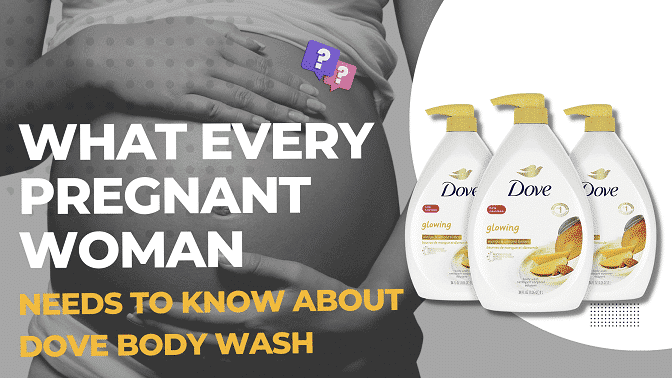It’s simply not enough to rub your preferred bar of soap on your entire body as you have to put more effort when washing your body and do a whole better if your aim is to keep your body sparkling clean. At Health soothe, we will show you how to wash your body very well and keep them clean, fresh, and free of potentially harmful bacteria.
Not every individual will need a daily bath/shower. However, If you working on a daily basis, living in a place that is very hot or humid area, working in an area that is very dirty or you just get a new job where you get dirty/sweaty or are prone to body odor, you will want to wash/shower almost every day to rinse away sweat, dirt and harmful bacteria from your body..
He. are the Six parts of your body you have been washing all wrong
Hands and Under Your Fingernails should be washed daily
While you most likely wash your hands after using the restroom, but if you’re not scrubbing under your nails, you’re only doing half the job.
Fecal bacteria can set up under your nails, and it will be better if you soak a cotton swab with warm, soapy water and swabbing it under your nails to gently remove bacteria and viruses. Also, keeping your nails short can also help prevent bacteria from manifesting.
Your Hands should be washed every time. Even if you're not showering day and night. Hands contain more bacteria, and the bacteria and debris can be easily transferred to your eyes, mouth, and nose that cause certain ailments. By doing this, it will help keep you healthier, especially during cold and flu season. For example, Washing some part of your body is not that critical because, really, when is the last time you used your knee to wipe your eyes or put your big toe in your mouth?
Your face should be cleaned daily as well.
Just like with your hands, your face should be given special treatment. Even, on days, you're skipping the shower; wash your face with a gentle cleanser at least at night before you go to bed. Removing makeup, grime, and excess oil is important to keep breakouts from forming and keep your skin healthy.
You should scrub Behind Your Ears
The warm and recessed area of your ears is full of sebaceous glands which secrete sebum that provides an ideal hiding place for Staph aureus and Tinea capitis. If not cleaned daily, may start to produce a musty odor.
Wash your body including Your Belly Button
Belly buttons are warm, with nooks and crevices, which make them a great place for bacteria to hide. Swab your belly button daily with a cotton swab soaked in warm, soapy water or alcohol.
If you have a pierced belly button, it’s even more important to wash it regularly to prevent infections.
You should wash your Tongue daily
Every time, people only care for their teeth and gums and will do not brush our tongue very well. When speaking about oral health, will do not provide enough attention to the tongue, or will think that using mouthwash will get it clean enough.
However, the tongue has lots of little ridges and bumps that can hide bacteria, resulting in bad breath and even tooth damage if not cleaned regularly.
Brush your tongue with your toothbrush while you are brushing your teeth or use a tongue scraper.
Wash your Scalp is also part of your body
While you may wash your hair regularly, how much attention are you paying to your scalp? While it’s not necessary to wash your hair daily, it is important to scrub and massage your scalp daily to avoid a buildup of dead skin cells, that body mites and bacteria feast on.
Massaging your scalp daily with warm water not only increases blood flow but helps to manually remove the dead cells which can lead to dandruff
Wash Your Back
Although your back gets wet while you’re standing in the shower, it needs to get much more attention. You can buy a back scrubber or have your partner wash it for you with an exfoliating bath sponge, loofah, or washcloth at least two to three times a week to reduce the risk of developing skin and soft-tissue infections.
The Risks of Not Showering Enough
Most individuals do not shower enough. Are there any risks of going too long between bathing?
After, your body will start developing blackhead and acne development. Every individual is entitled to a ton of oil glands on our face so your face will develop oilier fast if you're avoiding a daily wash. But taking too long between showers can also breakouts the body, especially if you are prone to acne.
Not showering when you're sweaty is very bad than an accumulation of dirt, oil, and bacteria. Because. Sweat can irritate the skin faster, and leaving your skin with sweaty moist for long periods of time we raise the alarm of developing a bacterial or fungal infection like itching skin
If you go for long periods without bathing, you can develop a skin condition called dermatitis neglecta, where brown patches develop on your skin. These plaques are a mix of dead cells, dirt, sweat, and grime that has accumulated on your skin. Thankfully, this only happens if you're going weeks or months without stepping in the shower.
7 Steps to Shower (Especially If You Shower every time)
If you're working out on a daily basis and simply have to shower often, that's fine. There are rules you can follow before you wash your body and keep your skin healthy and hydrated. Also, you can use these tips if even you are the type that does not shower often.
Use warm water to bath.
The warm water we help your body, but Hot water will destroy the body in a short while and strip the skin of natural oils. You don't need to freeze yourself with cold water, but if the temperature of your water in your bathroom is at 100 degrees, you should turn the water temperature down to save your skin.
Keep showers short.
Standing in your bathroom for a longer period under the shower head may be relaxing, but the longer you're in there the more you are washing away your natural oil.
Change your soap to a non-drying or body cleanser.
How does your body feel with your current cleanser? If you notice a tight, dry, or itchy, it's time to change to a new soap. It doesn't matter the form you use, whether bar soap or liquid body cleanser, it should leave your skin feeling good after you towel off. Switching to a moisturizing product is a good idea.
Don't wash your body too hard.
If you're using a body scrub product or a loofah, gently massage it over your skin. There's no need to scrub too hard to the extent of skin redness as this will just irritate your skin. Seriously, there is no proven reason to scrub at your skin. You can use your hands or a soft washcloth washes your skins these are good enough to wipe out sweat and dirt.
Use soap on select areas of the body only.
This is the best thing you can do to get rid of dry skin if you're a frequent showered. Use soap only on areas that get the dirtiest or are prone to body odor, such has your hands, face, armpits, groin, and butt. A rinse with plain water we do just fine with the rest of the body part.
Use a moisturizer cream after you finish the shower.
Get a good moisturizing body lotion over your entire body to help keep your skin moisturized and supple. Fragrance-free products are available and for extra sensitive skin types.
Keep poufs and loofahs clean.
Those wet and damp sponges, loofahs, and shower poufs should be replaced. They don't last for years, so plan on replacing them at least every month.
Also, Store them outside of the bathroom so they can dry out well. Washcloths may be a better option for you because you can easily wash it and use a fresh cloth for every shower.
Article sources
- "How Often Do Children Need to Bathe." AAD.org. American Academy of Dermatology. 2017.
- Pastor DK, Harper DS. "Treating Body Odor in Primary Care." The Nurse Practitioner. 2012 Mar
- 13;37(3):15-8.
- "How often you should shower." Very Well Health. accessed 2018-9-18



